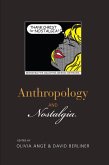How should we tell the histories of academic disciplines? All too often, the political and institutional dimensions of knowledge production are lost beneath the intellectual debates. This book redresses the balance. Written in a narrative style and drawing on archival sources and oral histories, it depicts the complex pattern of personal and administrative relationships that shape scholarly worlds.
Focusing on the field of social anthropology in twentieth-century Britain, this book describes individual, departmental and institutional rivalries over funding and influence. It examines the efforts of scholars such as Bronislaw Malinowski, Edward Evans-Pritchard and Max Gluckman to further their own visions for social anthropology. Did the future lie with the humanities or the social sciences, with addressing social problems or developing scholarly autonomy? This new history situates the discipline's rise within the post-war expansion of British universities and the challenges created by the end of Empire.
Focusing on the field of social anthropology in twentieth-century Britain, this book describes individual, departmental and institutional rivalries over funding and influence. It examines the efforts of scholars such as Bronislaw Malinowski, Edward Evans-Pritchard and Max Gluckman to further their own visions for social anthropology. Did the future lie with the humanities or the social sciences, with addressing social problems or developing scholarly autonomy? This new history situates the discipline's rise within the post-war expansion of British universities and the challenges created by the end of Empire.
Dieser Download kann aus rechtlichen Gründen nur mit Rechnungsadresse in A, D ausgeliefert werden.









